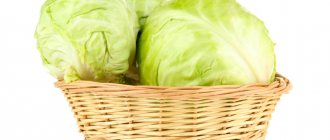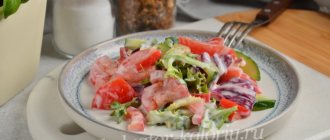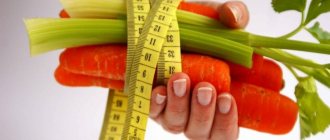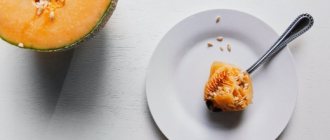Vitamin B12 is retained in the body, although this is rare for water-soluble vitamins. It has analgesic (moderate), antiallergic and antidepressant properties. It is a heat-stable, water-soluble vitamin, but is sensitive to light. The body stores it in the liver for several years.
Vitamin B12, like all other B vitamins (vitamins B1, B6), plays an important role in the release of energy. However, unlike other vitamins in this group, it plays an antiallergic and detoxifying role (promotes the removal of toxins from the body). It is sometimes used for therapeutic purposes, in particular to combat anemia.
The history of vitamin B12 began in 1926 with the study of anemia (William Murphy), when research showed that liver extracts could cure some forms of anemia, including pernicious anemia. It was subsequently isolated from the liver (George Whipple, George Minot), for which these scientists were awarded the Nobel Prize.
Liver was initially used as a raw material for the production of vitamin B12, 1 ton of which can provide 25 mg of this vitamin, but its artificial synthesis has now been mastered.
Vitamin B12 exists in the body in various forms of cobalamin, mainly hydroxocobalamin and cyanocobalamin (hydroxocobalamin differs from cyanocobalamin by the presence of a hydroxyl group in the first compound, which is replaced by a cyanine group in the second case). Most often, vitamin B12 enters the human body in the form of cyanocobalamin.
What is vitamin B12?
Vitamin B12 is a water-soluble vitamin that is heat stable but moisture sensitive. It is stored in large quantities in the body (in the liver) for several years. In the form of cyanocobalamin, it is present in nature as a dark red crystalline powder, odorless and tasteless. The color is due to the presence of a cobalt atom in its chemical composition. Strongly inactivated by light, strongly acidic or strongly alkaline solutions. It is hygroscopic, that is, it absorbs moisture from the air. Because of this, its weight in air can increase by up to 12%. Therefore, it must be stored away from air and any source of moisture.
The human body is not able to synthesize vitamin B12 itself, so its deficiency must be replenished from food or through dietary supplements or injections. Vitamin B12 is absorbed in the small intestine in the presence of calcium, and after binding to the secreted gastric juice of a special transport protein, it penetrates the mucous membrane.
In normal condition, the human body contains about 5 mg of vitamin B12. It is stored mainly in the liver (from 2 to 3 mg, which is approximately 60% of the total amount), which represents a significant reserve and can satisfy human needs for 3-5 years.
Excess vitamin B12 is excreted in bile, urine, and also in skin cells that begin to peel off. In this case, anaphylactic reactions (itching, urticaria, rash), acne, or red urine coloration may occur, which requires immediate cessation of treatment.
B12 deficiency – how to recognize it and why it is dangerous for vegetarians
A lack of b12 will negatively affect the functioning of the entire body if it is not detected and prevented in time.
In both animals and humans, vitamin B12 is concentrated and deposited in the liver. When switching to vegetarianism, these reserves can last for months and years. Vegetarians concerned about their b12 levels should not rely solely on these supplies; an additional source is definitely needed. Otherwise, there is a risk of increased homocysteine in the blood, which can lead to the development of cardiovascular diseases and negatively affect the course of pregnancy.
Manifestations of b12 deficiency at an early stage:
See Also News
Russian startup Greenwise will compete with Beyond Meat in the Russian vegan meat market
- digestive disorders
- loss of strength, fatigue, drowsiness
- loss of appetite
- nausea.
With an obvious deficiency, the symptoms already become dangerous and manifest themselves as:
- numbness or tingling in the extremities, muscle weakness
- pale and slightly yellowish skin color
- increased nervousness, aggression or depression, memory problems, hallucinations
- ringing in the ears, headaches, blurred vision, shortness of breath, rapid heartbeat
- ulcers in the corners of the mouth, bleeding gums, inflammation of the tongue mucosa
- diarrhea.
Of course, these signs may correspond to different diseases. Tests for homocysteine or methylmalonic acid (MMA) levels will help identify or rule out vitamin deficiency as a cause. Currently, the indicators of these substances are the most accurate markers in determining B12 content. A test for homocysteine levels will also help identify hidden b12 deficiency, which is asymptomatic.
Why does the body need vitamin B12?
Vitamin B12 is involved in providing energy to the body (like all other B vitamins), but also plays a role in cell growth and DNA synthesis. It also has an antiallergic effect and promotes detoxification of the body.
Here is a list of the main functions of vitamin B12:
- in the form of coenzyme B12 plays a role in cell reproduction (in the gastrointestinal tract, nervous system, bone marrow) and promotes growth
- is a powerful anti-anemia agent responsible for the formation of red blood cells in the bone marrow
- promotes the normal functioning of the nervous system, including a beneficial effect on the myelin sheaths that protect the nerves
- participates in DNA synthesis
- has an analgesic effect, as well as an anabolic effect
- promotes detoxification of the body
- essential for the metabolism of carbohydrates, proteins and fats, which ensures its role in energy production
- promotes iron absorption;
- has hypoallergenic properties;
- has a tonic effect
- helps prevent the production of homocysteine in the blood (most often together with vitamins B6 and B9); high concentrations of homocysteine increase the risk of cardiovascular disease and are toxic to brain neurons, causing Alzheimer's disease, depression, and schizophrenia.
It is important to note that there is a synergistic effect (action in one direction) with folic acid (vitamin B9).
Foods rich in vitamin B
To understand which foods contain B vitamins, check out the table.
| Name of vitamin | Letter designation | Foods that contain vitamin B |
| Thiamine | B1 | Pork, oysters, cheeses, peas, green vegetables, potatoes, bran, dairy products, eggs, brown rice |
| Riboflavin | B2 | Various types of meat, chicken eggs, dairy products, buckwheat, cabbage, spinach |
| Niacin | B3 (PP) | By-products (liver, kidneys, heart), nuts, legumes, various types of fish, brewer's yeast, green vegetables |
| Kholin | B4 | Egg yolk, offal, soy, cabbage, liver |
| Pantothenic acid | B5 | Liver, whole grain bread, cereals, nuts, eggs, green vegetables |
| Pyridoxine | B6 | Bananas, green peppers, meat, fish, carrots, liver, cereals, cabbage |
| Biotin | B7 | Rice, soybeans, peanuts, liver, green vegetables |
| Folic acid | B9 | Egg yolk, milk, oranges, legumes, asparagus, wheat |
| Cobalamin | B12 | Offal, meat, poultry, cheese |
Top 10 Foods Containing B Vitamins
When wondering what foods contain vitamin B, you need to remember that this compound is most often found in foods of animal origin, green vegetables, and grains.
Let's consider food products containing the maximum concentration of these valuable elements:
- Toasted sunflower seeds. To compensate for the deficiency, halva made from these seeds is suitable.
- Beef liver is the most common answer to the question of where vitamin B is found. The maximum of the valuable component is accumulated here. To preserve the benefits, it is recommended to prepare it by boiling, then all the vitamins contained in the liver will remain unchanged.
- Pink salmon is a particularly valuable salted fish that retains a maximum of minerals and vitamins.
- Chicken eggs - white and yolk. In order for products containing B vitamins to retain more valuable substances, it is recommended to boil them, but not to fry them.
- Boiled lamb kidneys.
- Pistachios - despite the plant origin of the fruit, the concentration of beneficial compounds here is no lower than that of meat, fish, and offal.
- Honeysuckle is a berry that contains a lot of vitamin B. They can be eaten raw, added to compotes, jam, and fruit drinks.
- Chicken meat - there are all types of B vitamins. There is a particularly high concentration of elements inside the breast, fillet, and liver.
- Veal is the leader in foods that contain vitamin B. Tenderloin is especially valuable, which must be prepared by stewing, boiling, and salting.
- Red caviar – fatty acids are additionally present here, which increases the value of the product.
Also read: What are vitamins for? What vitamins and vitamin complexes should you take?
Requirement for vitamin B12. Instructions for use
The Recommended Daily Allowance (RDA) for vitamin B12 averages 3 mcg per day (for a healthy adult), but may vary depending on age and physiological status. So the dose should be increased during pregnancy and lactation. Please note that some substances, such as copper and vitamin C, have a negative effect on the absorption of vitamin B12.
| Age/physiological status | Recommended average dose (mcg) |
| from birth to one year | 0,3-0,5 |
| from one to 3 years | 0,7-1,4 |
| from 3 to 15 years | 2-3 |
| adult women, men | 3 |
| pregnant women, nursing mothers, elderly people | 4 |
Vitamin B12 content in plant foods
Table of vitamin B12 content in products from the category - products of plant origin. The chart shows the percentage of vitamin B12 from the daily requirement, calculated based on a 100 g serving of the product.
| № | Quantity | Share of daily value per 100 g | |
| 1 | Yogurt | 0.5 mcg | 20,8% |
| 2 | Caramel | 0.3 mcg | 12,5% |
| 3 | Pancakes | 0.2 mcg | 8,3% |
| 4 | Brown raw champignons | 0.1 mcg | 4,2% |
| 5 | Tempe | 0.1 mcg | 3,3% |
| 6 | Mashed potatoes with milk and butter, prepared | 0.1 mcg | 2,9% |
| 7 | Raw champignons | 0.0 µg | 1,7% |
| 8 | Halva | 0.0 µg | 1,7% |
| 9 | Rose wine | 0.0 µg | 0,4% |
| 10 | Red beans (Kidney) sprouted fresh | 0.0 µg | 0,0% |
| 11 | Almond oil | 0.0 µg | 0,0% |
| 12 | Fresh almonds | 0.0 µg | 0,0% |
| 13 | Boiled variegated beans (Pinto) | 0.0 µg | 0,0% |
| 14 | Roasted almonds | 0.0 µg | 0,0% |
| 15 | Fresh sprouted variegated beans (Pinto) | 0.0 µg | 0,0% |
| 16 | Boiled pink beans | 0.0 µg | 0,0% |
| 17 | Boiled black beans | 0.0 µg | 0,0% |
| 18 | Boiled black-eyed beans | 0.0 µg | 0,0% |
| 19 | Fresh blueberries | 0.0 µg | 0,0% |
| 20 | Carrots raw (fresh) | 0.0 µg | 0,0% |
| 21 | Boiled carrots | 0.0 µg | 0,0% |
| 22 | Onion rings | 0.0 µg | 0,0% |
| 23 | Raw seaweed | 0.0 µg | 0,0% |
| 24 | Boiled pigeon peas | 0.0 µg | 0,0% |
| 25 | Peas boiled in water (ripe) | 0.0 µg | 0,0% |
| 26 | Feijoa fresh | 0.0 µg | 0,0% |
| 27 | Fresh green peas | 0.0 µg | 0,0% |
| 28 | Fennel, raw (fruit or root) | 0.0 µg | 0,0% |
| 29 | Fresh sprouted peas | 0.0 µg | 0,0% |
| 30 | Nutmeg spice, ground | 0.0 µg | 0,0% |
| 31 | Fennel seeds | 0.0 µg | 0,0% |
| 32 | Canned green peas | 0.0 µg | 0,0% |
| 33 | Fresh medlar | 0.0 µg | 0,0% |
| 34 | Physalis fresh | 0.0 µg | 0,0% |
| 35 | Table mustard, paste | 0.0 µg | 0,0% |
| 36 | Fresh mint | 0.0 µg | 0,0% |
| 37 | Fresh vegetable physalis | 0.0 µg | 0,0% |
| 38 | Mustard oil | 0.0 µg | 0,0% |
| 39 | Fresh peppermint | 0.0 µg | 0,0% |
| 40 | Jujube (Chinese date) fresh | 0.0 µg | 0,0% |
| 41 | Mustard seeds ground mustard | 0.0 µg | 0,0% |
| 42 | Dates Deglet nur | 0.0 µg | 0,0% |
| 43 | Fresh pomegranate | 0.0 µg | 0,0% |
| 44 | Canned pomegranate juice | 0.0 µg | 0,0% |
| 45 | Fresh pistachios | 0.0 µg | 0,0% |
| 46 | Fresh grapefruit | 0.0 µg | 0,0% |
| 47 | Roasted pistachios (no salt) | 0.0 µg | 0,0% |
| 48 | Fresh grapefruit juice | 0.0 µg | 0,0% |
| 49 | Walnut | 0.0 µg | 0,0% |
| 50 | Nori seaweed, raw | 0.0 µg | 0,0% |
| 51 | Hazelnut oil | 0.0 µg | 0,0% |
| 52 | Walnut oil | 0.0 µg | 0,0% |
| 53 | Dry chickpeas | 0.0 µg | 0,0% |
| 54 | Fresh hazelnuts | 0.0 µg | 0,0% |
| 55 | Buckwheat boiled in water (buckwheat porridge) | 0.0 µg | 0,0% |
| 56 | Boiled chickpeas | 0.0 µg | 0,0% |
| 57 | Roasted hazelnuts | 0.0 µg | 0,0% |
| 58 | Dry green buckwheat | 0.0 µg | 0,0% |
| 59 | Oat oil | 0.0 µg | 0,0% |
| 60 | Buckwheat flour | 0.0 µg | 0,0% |
| 61 | Oat flour | 0.0 µg | 0,0% |
| 62 | Wood mushroom raw | 0.0 µg | 0,0% |
| 63 | Unheated oat bran | 0.0 µg | 0,0% |
| 64 | Shiitake mushrooms, cooked | 0.0 µg | 0,0% |
| 65 | Raw oyster mushrooms | 0.0 µg | 0,0% |
| 66 | Fresh breadfruit | 0.0 µg | 0,0% |
| 67 | Maitake mushrooms raw | 0.0 µg | 0,0% |
| 68 | Cottonseed oil | 0.0 µg | 0,0% |
| 69 | Fried portobello mushrooms | 0.0 µg | 0,0% |
| 70 | Fresh cucumbers | 0.0 µg | 0,0% |
| 71 | Horseradish, ready to eat | 0.0 µg | 0,0% |
| 72 | Fresh dandelion leaves | 0.0 µg | 0,0% |
| 73 | Fresh persimmon | 0.0 µg | 0,0% |
| 74 | Enoki mushrooms raw | 0.0 µg | 0,0% |
| 75 | Fresh black persimmon (sapota) | 0.0 µg | 0,0% |
| 76 | Chicory root, raw | 0.0 µg | 0,0% |
| 77 | Fresh pear | 0.0 µg | 0,0% |
| 78 | Instant chicory (ready-made coffee) | 0.0 µg | 0,0% |
| 79 | Canned pear juice (nectar) | 0.0 µg | 0,0% |
| 80 | Canned olives | 0.0 µg | 0,0% |
| 81 | Fresh chicory leaves | 0.0 µg | 0,0% |
| 82 | Fresh guava | 0.0 µg | 0,0% |
| 83 | Olive oil | 0.0 µg | 0,0% |
| 84 | Ground savory | 0.0 µg | 0,0% |
| 85 | Reveler seeds | 0.0 µg | 0,0% |
| 86 | Canned green olives | 0.0 µg | 0,0% |
| 87 | Chayote raw | 0.0 µg | 0,0% |
| 88 | Prickly pear (fruit) fresh | 0.0 µg | 0,0% |
| 89 | Oregano oregano, dried | 0.0 µg | 0,0% |
| 90 | Green tea without sugar, prepared | 0.0 µg | 0,0% |
| 91 | Butternut | 0.0 µg | 0,0% |
| 92 | Green tea with sugar (prepared) | 0.0 µg | 0,0% |
| 93 | Black tea without sugar, prepared | 0.0 µg | 0,0% |
| 94 | Fresh daikon | 0.0 µg | 0,0% |
| 95 | Black tea with sugar and lemon (prepared) | 0.0 µg | 0,0% |
| 96 | Fresh jambolan | 0.0 µg | 0,0% |
| 97 | Fenugreek seeds | 0.0 µg | 0,0% |
| 98 | Fresh jackfruit | 0.0 µg | 0,0% |
| 99 | Cherimoya fresh | 0.0 µg | 0,0% |
| 100 | Gin 45 degrees alcohol | 0.0 µg | 0,0% |
| 101 | Palm oil | 0.0 µg | 0,0% |
| 102 | Black Walnut | 0.0 µg | 0,0% |
| 103 | Durian fresh | 0.0 µg | 0,0% |
| 104 | Canned heart of palm | 0.0 µg | 0,0% |
| 105 | Raw garlic | 0.0 µg | 0,0% |
| 106 | Fresh melon | 0.0 µg | 0,0% |
| 107 | Papaya juice (nectar) canned | 0.0 µg | 0,0% |
| 108 | Lentils boiled in water | 0.0 µg | 0,0% |
| 109 | Fresh cantaloupe melon | 0.0 µg | 0,0% |
| 110 | Fresh papaya | 0.0 µg | 0,0% |
| 111 | Fresh sprouted lentils | 0.0 µg | 0,0% |
| 112 | Fresh blackberries | 0.0 µg | 0,0% |
| 113 | Fern (shoots) raw | 0.0 µg | 0,0% |
| 114 | Chia seeds | 0.0 µg | 0,0% |
| 115 | Canned blackberry juice | 0.0 µg | 0,0% |
| 116 | Parsnip root raw | 0.0 µg | 0,0% |
| 117 | Ground sage | 0.0 µg | 0,0% |
| 118 | Cooked squash | 0.0 µg | 0,0% |
| 119 | Raw beetroot | 0.0 µg | 0,0% |
| 120 | Pecan | 0.0 µg | 0,0% |
| 121 | Fried champignons | 0.0 µg | 0,0% |
| 122 | Ground allspice | 0.0 µg | 0,0% |
| 123 | Saffron spice | 0.0 µg | 0,0% |
| 124 | Jeera cumin seeds | 0.0 µg | 0,0% |
| 125 | Green bell pepper, fresh | 0.0 µg | 0,0% |
| 126 | Fresh mulberries | 0.0 µg | 0,0% |
| 127 | Fresh red bell pepper | 0.0 µg | 0,0% |
| 128 | Seedless raisins | 0.0 µg | 0,0% |
| 129 | Ground black pepper | 0.0 µg | 0,0% |
| 130 | Ginger extract powder | 0.0 µg | 0,0% |
| 131 | Red hot fresh chili pepper | 0.0 µg | 0,0% |
| 132 | Raw ginger root | 0.0 µg | 0,0% |
| 133 | Ground dry chili pepper | 0.0 µg | 0,0% |
| 134 | Hot chili peppers dried in the sun | 0.0 µg | 0,0% |
| 135 | Canned peach juice (nectar) | 0.0 µg | 0,0% |
| 136 | Fresh peach, pitted | 0.0 µg | 0,0% |
| 137 | Fresh parsley | 0.0 µg | 0,0% |
| 138 | Walnut drank | 0.0 µg | 0,0% |
| 139 | Fresh Suriname cherries | 0.0 µg | 0,0% |
| 140 | Fresh figs | 0.0 µg | 0,0% |
| 141 | Sunflower oil | 0.0 µg | 0,0% |
| 142 | Sunflower flour | 0.0 µg | 0,0% |
| 143 | Fresh spinach | 0.0 µg | 0,0% |
| 144 | Iris | 0.0 µg | 0,0% |
| 145 | Sunflower seeds, peeled | 0.0 µg | 0,0% |
| 146 | Boiled spinach | 0.0 µg | 0,0% |
| 147 | Roasted sunflower seeds (hulled) | 0.0 µg | 0,0% |
| 148 | Fresh sorrel | 0.0 µg | 0,0% |
| 149 | Fried or baked zucchini (without oil) | 0.0 µg | 0,0% |
| 150 | Cacao butter | 0.0 µg | 0,0% |
| 151 | Fresh pomelo | 0.0 µg | 0,0% |
| 152 | Escarole cooked | 0.0 µg | 0,0% |
| 153 | Fresh tomatoes | 0.0 µg | 0,0% |
| 154 | Cooked tomatoes | 0.0 µg | 0,0% |
| 155 | Dried tarragon | 0.0 µg | 0,0% |
| 156 | Canola oil | 0.0 µg | 0,0% |
| 157 | Fresh purslane | 0.0 µg | 0,0% |
| 158 | Fresh apples | 0.0 µg | 0,0% |
| 159 | Pickled capers | 0.0 µg | 0,0% |
| 160 | Bulgur boiled in water (porridge) | 0.0 µg | 0,0% |
| 161 | Canned apple juice | 0.0 µg | 0,0% |
| 162 | Fresh Brussels sprouts | 0.0 µg | 0,0% |
| 163 | Wheat germ oil | 0.0 µg | 0,0% |
| 164 | Java apple fresh | 0.0 µg | 0,0% |
| 165 | Boiled Brussels sprouts | 0.0 µg | 0,0% |
| 166 | All-purpose wheat flour | 0.0 µg | 0,0% |
| 167 | Yams cooked | 0.0 µg | 0,0% |
| 168 | Fresh cabbage, white cabbage | 0.0 µg | 0,0% |
| 169 | Whole grain flour (wheat) | 0.0 µg | 0,0% |
| 170 | Barley flour | 0.0 µg | 0,0% |
| 171 | Boiled cabbage (white cabbage) | 0.0 µg | 0,0% |
| 172 | Unheated wheat bran | 0.0 µg | 0,0% |
| 173 | Malted barley flour | 0.0 µg | 0,0% |
| 174 | Sauerkraut (kimchi) | 0.0 µg | 0,0% |
| 175 | Fresh sprouted wheat | 0.0 µg | 0,0% |
| 176 | Barley boiled in water (barley porridge) | 0.0 µg | 0,0% |
| 177 | Fresh red cabbage | 0.0 µg | 0,0% |
| 178 | White wheat bread | 0.0 µg | 0,0% |
| 179 | Raw curly cabbage | 0.0 µg | 0,0% |
| 180 | Sprouted wheat bread | 0.0 µg | 0,0% |
| 181 | Fresh kale | 0.0 µg | 0,0% |
| 182 | Cooked cabbage (boiled) | 0.0 µg | 0,0% |
| 183 | Wheat bran bread | 0.0 µg | 0,0% |
| 184 | Fresh Chinese cabbage | 0.0 µg | 0,0% |
| 185 | Whole grain wheat bread | 0.0 µg | 0,0% |
| 186 | Fresh savoy cabbage | 0.0 µg | 0,0% |
| 187 | Fresh cauliflower | 0.0 µg | 0,0% |
| 188 | Millet boiled in water | 0.0 µg | 0,0% |
| 189 | Boiled cauliflower | 0.0 µg | 0,0% |
| 190 | Radicchio fresh | 0.0 µg | 0,0% |
| 191 | Rambutan canned | 0.0 µg | 0,0% |
| 192 | Cardamom | 0.0 µg | 0,0% |
| 193 | Rhubarb stem raw | 0.0 µg | 0,0% |
| 194 | Fresh carissa fruits | 0.0 µg | 0,0% |
| 195 | Fresh radish | 0.0 µg | 0,0% |
| 196 | Shea butter (karite) | 0.0 µg | 0,0% |
| 197 | Fresh turnip tops | 0.0 µg | 0,0% |
| 198 | Turnips raw | 0.0 µg | 0,0% |
| 199 | Boiled potatoes | 0.0 µg | 0,0% |
| 200 | Cooked turnips | 0.0 µg | 0,0% |
| 201 | Baked potatoes | 0.0 µg | 0,0% |
| 202 | Rice bran oil | 0.0 µg | 0,0% |
| 203 | Raw potatoes | 0.0 µg | 0,0% |
| 204 | Brown rice flour | 0.0 µg | 0,0% |
| 205 | French fries | 0.0 µg | 0,0% |
| 206 | Rice flour | 0.0 µg | 0,0% |
| 207 | Unheated rice bran | 0.0 µg | 0,0% |
| 208 | Potato starch | 0.0 µg | 0,0% |
| 209 | Boiled long grain rice | 0.0 µg | 0,0% |
| 210 | Chestnut, peeled, fresh | 0.0 µg | 0,0% |
| 211 | Steamed boiled rice | 0.0 µg | 0,0% |
| 212 | Pine nut without shell | 0.0 µg | 0,0% |
| 213 | Boiled round grain rice | 0.0 µg | 0,0% |
| 214 | Chocolate cupcake with chocolate icing | 0.0 µg | 0,0% |
| 215 | Boiled rice (in water) | 0.0 µg | 0,0% |
| 216 | Dried openwork chervil | 0.0 µg | 0,0% |
| 217 | Boiled long grain brown rice | 0.0 µg | 0,0% |
| 218 | Boiled brown rice | 0.0 µg | 0,0% |
| 219 | Cashew raw | 0.0 µg | 0,0% |
| 220 | Boiled wild rice | 0.0 µg | 0,0% |
| 221 | Roasted cashews | 0.0 µg | 0,0% |
| 222 | Boiled glutinous (sticky) rice | 0.0 µg | 0,0% |
| 223 | Rice bran bread | 0.0 µg | 0,0% |
| 224 | Fresh kiwi | 0.0 µg | 0,0% |
| 225 | Rye flour | 0.0 µg | 0,0% |
| 226 | Rye bread | 0.0 µg | 0,0% |
| 227 | Cilantro (coriander leaves) fresh | 0.0 µg | 0,0% |
| 228 | Rye bread | 0.0 µg | 0,0% |
| 229 | Quinoa boiled in water | 0.0 µg | 0,0% |
| 230 | Hibiscus flower, fresh | 0.0 µg | 0,0% |
| 231 | Fireweed (fireweed leaves) fresh | 0.0 µg | 0,0% |
| 232 | Fresh rosemary | 0.0 µg | 0,0% |
| 233 | Fresh strawberries | 0.0 µg | 0,0% |
| 234 | Fresh cranberries | 0.0 µg | 0,0% |
| 235 | Fresh arugula | 0.0 µg | 0,0% |
| 236 | Cranberry juice without sugar | 0.0 µg | 0,0% |
| 237 | Fresh iceberg lettuce | 0.0 µg | 0,0% |
| 238 | Salsify (salf's root) raw | 0.0 µg | 0,0% |
| 239 | Fresh head lettuce | 0.0 µg | 0,0% |
| 240 | Fresh coconut water | 0.0 µg | 0,0% |
| 241 | Fresh lettuce | 0.0 µg | 0,0% |
| 242 | Unsweetened coconut flakes | 0.0 µg | 0,0% |
| 243 | Fresh red lettuce | 0.0 µg | 0,0% |
| 244 | Fresh coconut milk | 0.0 µg | 0,0% |
| 245 | Fresh Roman salad | 0.0 µg | 0,0% |
| 246 | Coconut oil | 0.0 µg | 0,0% |
| 247 | Fresh endive | 0.0 µg | 0,0% |
| 248 | Fresh coconut meat | 0.0 µg | 0,0% |
| 249 | Sapodilla fruits fresh | 0.0 µg | 0,0% |
| 250 | Fresh kohlrabi | 0.0 µg | 0,0% |
| 251 | Aspartame sugar substitute | 0.0 µg | 0,0% |
| 252 | Boiled kohlrabi (cabbage) | 0.0 µg | 0,0% |
| 253 | Stevia (sweetener) sugar substitute | 0.0 µg | 0,0% |
| 254 | Saccharin sugar substitute | 0.0 µg | 0,0% |
| 255 | Coriander seeds | 0.0 µg | 0,0% |
| 256 | Sucralose sugar substitute | 0.0 µg | 0,0% |
| 257 | Fructose sugar substitute | 0.0 µg | 0,0% |
| 258 | Cinnamon powder | 0.0 µg | 0,0% |
| 259 | Agave syrup sugar substitute, sweetener | 0.0 µg | 0,0% |
| 260 | Brown sugar | 0.0 µg | 0,0% |
| 261 | Granulated sugar | 0.0 µg | 0,0% |
| 262 | Sugar apple fresh | 0.0 µg | 0,0% |
| 263 | Fresh beet tops | 0.0 µg | 0,0% |
| 264 | Raw beets | 0.0 µg | 0,0% |
| 265 | Boiled beets | 0.0 µg | 0,0% |
| 266 | Prepared instant coffee | 0.0 µg | 0,0% |
| 267 | Brewed coffee beans | 0.0 µg | 0,0% |
| 268 | Ready-made espresso coffee | 0.0 µg | 0,0% |
| 269 | Fresh watercress | 0.0 µg | 0,0% |
| 270 | Fresh gooseberries | 0.0 µg | 0,0% |
| 271 | Fresh celery | 0.0 µg | 0,0% |
| 272 | Dry corn kernels | 0.0 µg | 0,0% |
| 273 | Celery seeds | 0.0 µg | 0,0% |
| 274 | Corn starch | 0.0 µg | 0,0% |
| 275 | Raw corn | 0.0 µg | 0,0% |
| 276 | Boiled corn | 0.0 µg | 0,0% |
| 277 | Canned corn | 0.0 µg | 0,0% |
| 278 | Corn oil | 0.0 µg | 0,0% |
| 279 | White corn flour (masa) | 0.0 µg | 0,0% |
| 280 | Fresh plum | 0.0 µg | 0,0% |
| 281 | Fresh apricot | 0.0 µg | 0,0% |
| 282 | Corn flour | 0.0 µg | 0,0% |
| 283 | Prunes | 0.0 µg | 0,0% |
| 284 | Fresh Antillean apricot | 0.0 µg | 0,0% |
| 285 | Yellow whole grain corn flour | 0.0 µg | 0,0% |
| 286 | Fresh soursop | 0.0 µg | 0,0% |
| 287 | Apricot oil | 0.0 µg | 0,0% |
| 288 | Fresh kumquat | 0.0 µg | 0,0% |
| 289 | Canned soursop juice (nectar) | 0.0 µg | 0,0% |
| 290 | Canned apricot juice (nectar) | 0.0 µg | 0,0% |
| 291 | Unroasted sesame | 0.0 µg | 0,0% |
| 292 | Fresh red or white currants | 0.0 µg | 0,0% |
| 293 | Avocado fresh | 0.0 µg | 0,0% |
| 294 | Roasted sesame | 0.0 µg | 0,0% |
| 295 | Fresh black currant | 0.0 µg | 0,0% |
| 296 | Avocado oil | 0.0 µg | 0,0% |
| 297 | Sesame oil | 0.0 µg | 0,0% |
| 298 | Fresh quince | 0.0 µg | 0,0% |
| 299 | Sesame flour | 0.0 µg | 0,0% |
| 300 | Dried apricots | 0.0 µg | 0,0% |
| 301 | Fresh amaranth leaves | 0.0 µg | 0,0% |
| 302 | Raw asparagus | 0.0 µg | 0,0% |
| 303 | Fresh pineapple | 0.0 µg | 0,0% |
| 304 | Boiled asparagus | 0.0 µg | 0,0% |
| 305 | Anise seeds | 0.0 µg | 0,0% |
| 306 | Spirulina raw | 0.0 µg | 0,0% |
| 307 | Starfruit (starfruit) fresh | 0.0 µg | 0,0% |
| 308 | Fresh oranges | 0.0 µg | 0,0% |
| 309 | Canned orange juice | 0.0 µg | 0,0% |
| 310 | Peanuts raw | 0.0 µg | 0,0% |
| 311 | Roasted peanuts | 0.0 µg | 0,0% |
| 312 | Peanut butter | 0.0 µg | 0,0% |
| 313 | Fresh watermelon | 0.0 µg | 0,0% |
| 314 | Arrowroot flour | 0.0 µg | 0,0% |
| 315 | Boiled artichokes | 0.0 µg | 0,0% |
| 316 | Boiled Spanish artichokes | 0.0 µg | 0,0% |
| 317 | Turmeric spice powder | 0.0 µg | 0,0% |
| 318 | Babassu oil | 0.0 µg | 0,0% |
| 319 | Couscous boiled in water | 0.0 µg | 0,0% |
| 320 | Fresh basil | 0.0 µg | 0,0% |
| 321 | Cooked eggplant | 0.0 µg | 0,0% |
| 322 | Bay leaf | 0.0 µg | 0,0% |
| 323 | Boiled bamboo shoots | 0.0 µg | 0,0% |
| 324 | Fresh lime | 0.0 µg | 0,0% |
| 325 | Dry soy tofu cheese | 0.0 µg | 0,0% |
| 326 | Raw okra | 0.0 µg | 0,0% |
| 327 | Fresh lime juice | 0.0 µg | 0,0% |
| 328 | Hard tofu cheese (linen) | 0.0 µg | 0,0% |
| 329 | Fresh bananas | 0.0 µg | 0,0% |
| 330 | Raw milkweed shoots | 0.0 µg | 0,0% |
| 331 | Fermented tofu cheese (fuyu) | 0.0 µg | 0,0% |
| 332 | Dried bananas | 0.0 µg | 0,0% |
| 333 | Fresh plantains | 0.0 µg | 0,0% |
| 334 | Raw sweet potato | 0.0 µg | 0,0% |
| 335 | Boiled butterbur | 0.0 µg | 0,0% |
| 336 | Quinoa fresh | 0.0 µg | 0,0% |
| 337 | Flaxseed oil | 0.0 µg | 0,0% |
| 338 | Flaxseed | 0.0 µg | 0,0% |
| 339 | Boiled beans (ripe) | 0.0 µg | 0,0% |
| 340 | Boiled green beans | 0.0 µg | 0,0% |
| 341 | Fresh green beans | 0.0 µg | 0,0% |
| 342 | Soybean oil | 0.0 µg | 0,0% |
| 343 | Soybean cake | 0.0 µg | 0,0% |
| 344 | Fresh lemon, without peel | 0.0 µg | 0,0% |
| 345 | Soy protein powder | 0.0 µg | 0,0% |
| 346 | Fresh lemon juice | 0.0 µg | 0,0% |
| 347 | Soy Protein (Isolate) Powder | 0.0 µg | 0,0% |
| 348 | Fresh lychees | 0.0 µg | 0,0% |
| 349 | Soy protein (concentrate) powder | 0.0 µg | 0,0% |
| 350 | Soy sauce (hydrolyzed) | 0.0 µg | 0,0% |
Excess and deficiency of vitamin B12
Vitamin B12 is non-toxic, that is, even with an overdose, the health risks are extremely low (with a strong excess, acne can occur). A lack of vitamin B12 can lead to anemia or allergies.
There are two main reasons for B12 deficiency:
- malnutrition, particularly among vegetarians;
- intestinal malabsorption (poor absorption), previous surgical operations on the stomach or intestines, chronic intestinal diseases, celiac disease (congenital intolerance to the protein of cereals, leading to impaired absorption in the small intestine), helminthic infestation.
Due to the fact that vitamin B12 reserves in the body remain for several years, a deficiency of this vitamin may not appear immediately, but months or years later. Deficiency occurs when vitamin reserves are reduced to a tenth of their original state.
Manifestations of vitamin B12 deficiency:
- anemia, up to the so-called “pernicious anemia”, which is manifested by severe general fatigue, pallor of the skin, loss of appetite, and, as a result, weight loss, shortness of breath, neurological disorders (tingling and weakness in the legs, bad mood, memory loss, dementia ) and hematological disorders (red blood cells stop dividing, which leads to a decrease in their number and to anemia)
- digestive disorders: nausea, constipation, colitis
- inflammation of the tongue (glossitis)
- decreased immune defense
- muscle pain
- allergic reactions.
List and table of foods containing vitamin B12
Cyanocobalamin is synthesized by intestinal microflora. Previously, it was artificially obtained using microorganisms that were placed in a nutrient medium containing cobalt salts.
Vegetables and fruits do not contain cyanocobalamin. Despite the fact that beets are a plant product and do not contain cyanocobalamin, they contain cobalt salts, which are used by intestinal microflora in the synthesis of vitamin B12.
Absorption improves the supply of calcium, with which cyanocobalamin interacts during food intake. The absorption of vitamin B12 is promoted by folic acid (B9).
Most vitamin B12 is found in animal products.
It contains liver, meat, fish roe, and dairy products. It is useful to include them in the diet once a week. Table of foods containing the most vitamin B12
| Product (100g) | Vitamin B12 content, mcg |
| Beef liver | 60 |
| Pork liver | 30 |
| Liver sausage | 23,4 |
| Chicken liver | 16 |
| Beef heart | 10 |
| Beef tongue | 4,7 |
| Rabbit meat | 4,1 |
| Mutton | 3 |
| Beef | 2,6 |
| Chicken meat | 0,5 |
| Chicken egg | 0,5 |
| Dairy | |
| Cheese | 1,5 |
| Low-fat cottage cheese | 1,3 |
| Milk | 0,4 |
| Kefir 1% | 0,4 |
| Low fat sour cream | 0,3 |
| Fish products | |
| Pacific oyster | 16 |
| Herring | 13 |
| Far Eastern mackerel | 12 |
| Oceanic sardine | 11 |
| Sardines in oil | 8,7 |
| Trout | 7,4 |
| Chum salmon | 4,1 |
| Sea bass | 2,4 |








